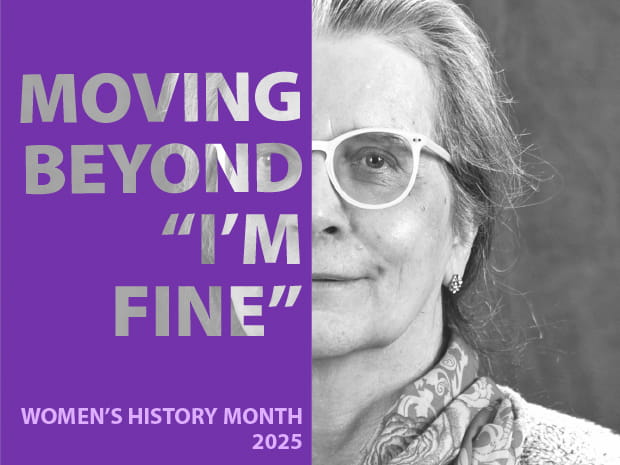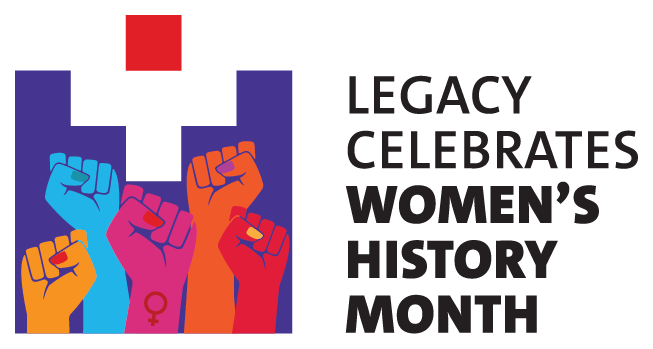Women’s History Month: Reza Antoszewska
March 06, 2025
Home > About > News & Media > Story Center
Reza Antoszewska taps into her skills to help women find their voice
Reza Antoszewska, MS, ANP, came to Legacy in 2009 to help start our integrated oncology program. As part of her role, she started holding mindfulness courses for patients and families.
Soon, Reza was holding mindfulness classes for all Legacy staff and nurses. Her role expanded again when Legacy received a federal grant from the Health Resources and Services Administration. The grant was intended to help the mental health of our staff.
“Now I’ve gone from patients being my patients to staff being my patients,” she said.
As we celebrate Women’s History Month and theme of helping women advocate for themselves, Reza spoke about her career, how it impacts women and how her mindfulness skills can help women find their voice.
Tell us about your background and how it relates to women’s health.
I originally didn’t want to be a nurse. I wanted to become a midwife. This was in the 1970s when husbands had to handcuff themselves to their wife’s bed to be able to enter the birth room. My inspiration was to go into midwifery and help change that. My instructors at the University of Buffalo were supportive. But I found when I got out of school and doing obstetrics work, I was teaching Lamaze classes, which was all the rage at the time. In teaching those classes of combining mind and body medicine, it occurred to me that there are more applications to this than childbirth. That started my quest into exploring how mindfulness can help us and that there are others who were exploring these ideas. This led me to Dr. Herbert Benson, who was teaching in this area at Harvard.
It's been a natural progression since then and women’s health has always weaved in and out of this thinking.
This year’s Women’s History Month theme at Legacy is Women’s Health: Moving beyond “I’m fine.” How does this theme resonate with your personal and professional experiences?
A lot of people say they are fine until they are burned out and falling apart, especially true with nurses. I have not taken that tact in my life. Using these mindfulness skills has helped me to find avenues to check in with myself to see if I’m fine. If we can check in, we can figure out what our needs are and what to do if we’re not fine. It’s also an incredible skill set to help ourselves feel fine and not to escalate into that not fine area.
How do you advocate for women at Legacy Health?
In oncology, I’d notice things going on and tried to address them while others were too busy. One of the things I noticed was a lot of women who go through chemotherapy for breast cancer end up with a lack of feeling in their hands and feet. It’s an awful thing to experience. You can do things with physical therapy to help with that. I became a staunch advocate to get providers to notice if a person shuffled into the room. I had a patient shuffle into the room, she’d been doing this for days with other providers, but she hadn’t mentioned this to any of those providers.
If a woman feels uncertain about advocating for themself, how would you encourage them? What specific advice or resources would you share with them?
The mindfulness skills I’ve explored and developed over the years are skills that others can use. For whatever reason, whether it be cultural, racial or other factors, people are fearful of speaking up for themselves. Those inner negative voices hold us back and that can have a profound effect on bringing our needs forward.

![]()
People are fearful of speaking up for themselves. Those inner negative voices hold us back and that can have a profound effect on bringing our needs forward.
![]()


